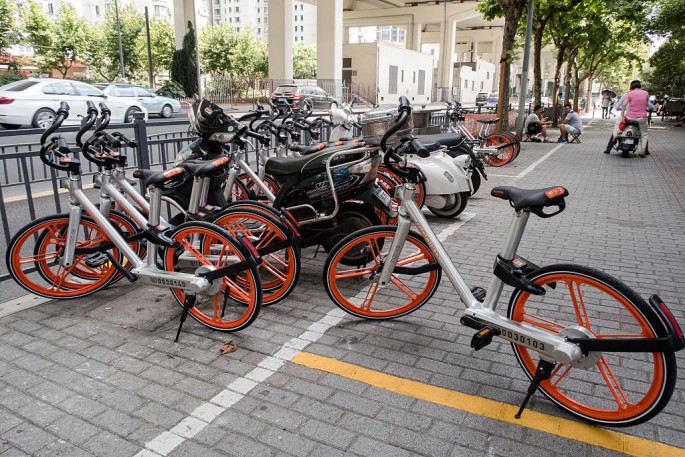Tech giants in China are looking at 'Uber for bikes' as the country's next big Internet craze, by investing millions of dollars as investment, according to Reuters.
The bicycle is now making a comeback as a way to beat traffic jams in many Chinese cities and startups have equipped it with smartphone apps, GPS and scannable codes, the report said.
In August, Didi Chuxing acquired Uber's China branch, turning it into a $35 billion giant, and driving firms to invest in car ride-hailing apps.
In the past months, MoBike and ofo have raised money from investors who are seeking the country's next tech unicorn.
Sources said Mobike, with backing from Internet giant Tencent, among others, has raised nearly $100 million in fund round while ofo made out $130 million this month from investors that included Didi, smartphone maker Xiaomi and U.S. hedge fund Coatue, which is backed by Facebook and Google.
"We did not expect there to be so many investors and we did not expect this field to get so hot," ofo co-founder Zhang Siding, 26, said in an interview.
Experts said it is still early to tell how much profit MoBike and ofo have made as they were both launched only in 2015.
Both companies use a feature which is its major advantage over traditional services. This feature allows riders to use smartphone apps to unlock and pay the hiring cost of the bikes and they are free to leave the bikes at the end of their journey. Users can also find nearby vacant MoBikes using a GPS tracking system.
Experts however, question if the business model can be replicated in other cities.
The business and rivalry between the two firms are growing. ofo said it has 85,000 bikes which provide 500, 000 rides daily while MoBike chief executive Wang Xiaofeng said they have more than 100,000 daily active users.
"We want to make bicycles sexy again by making a fashionable, high-tech bike," Wang said in an interview. Wang, a MoBike co-founder, was previously the Shanghai head of Uber.
The two firms are also facing challenges such as risks of theft, vandalism and irresponsible users who leave bikes in off-limit areas. Their services are also facing tight regulations and restrictions on drivers by the government. In addition to this, Chinese cities were designed for private cars which are on the increase in the last two decades.



























